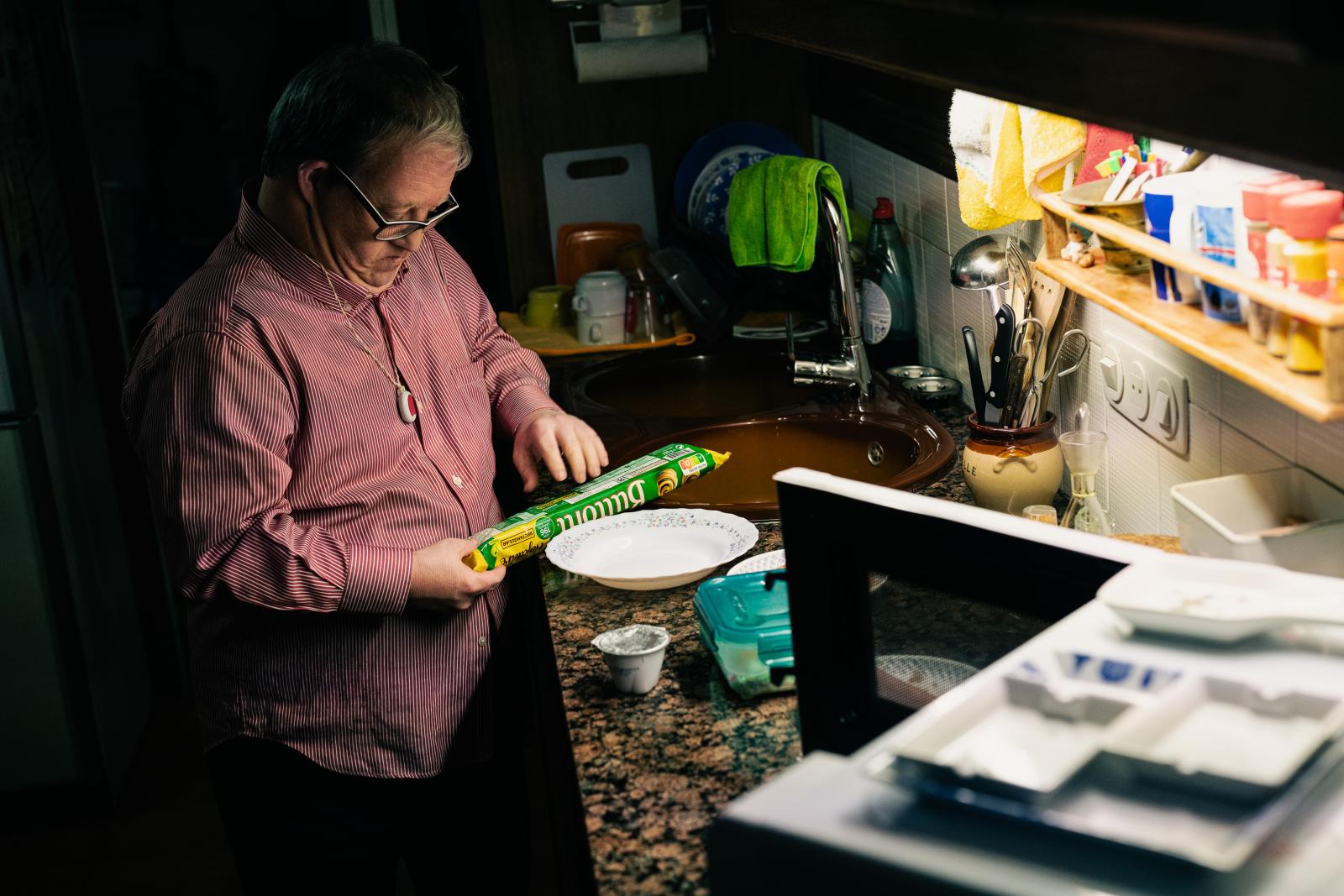enter this distinguished stage, preceded by an already false assumption that people with
Down syndrome do not live long. The project narrates the lives of three people around
50 years old with a marked career path accompanied by a day-to-day life
gaining more independence.
Life expectancy of people with Down syndrome has seen a substantial increase in recent decades, rising from an average of 25 years 30 years ago to more than 60 years today. The main factor has been the availability of excellent treatments that correct and/or prevent complications specific to the condition, leading to an improvement in active life integrated into the community and in the quality of life.The retirement age in Catalonia is set at 66.
However, there are several reasons why a person can access early retirement. Various capacities that disable or make it difficult for individuals to work are included in this scale. Specifically, those with a disability degree of 45% can request withdrawal at the age of 56, while people with a degree of 65% or higher can retire when they turn 52. Genetic abnormalities, such as Down syndrome, fall into this category. Being generally considered a mild or moderate degree of pathology, most cases fall into the 45% range.In May 2023, the Spanish Council of Ministers approved a royal decree facilitating access to early retirement for people with various pathologies. This measure applies to individuals who can prove they have worked the minimum contribution time, which has changed from 15 years to 5 years from the moment the condition is registered—a significant change for access to such an important part of life.
"Diverse Retirements" arises from the lack of representation of people with Down syndrome entering this distinguished stage, challenging the outdated assumption that people with Down syndrome do not live long. The project narrates the lives of three people around 50 years old with marked career paths, accompanied by day-to-day lives gaining more independence.




















